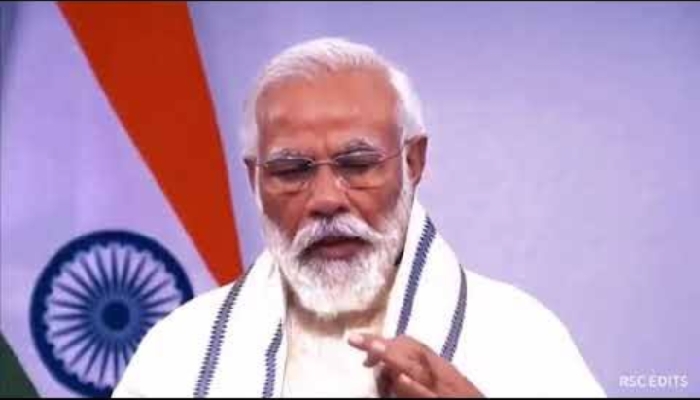Hyderabad, Feb 16: Iranian president Hassan Rouhani on Thursday lauded India's cultural diversity, saying multiple faiths and schools of thought co-exist peacefully in the country.
Speaking at a meeting with Muslim intellectuals, scholars and clerics in Hyderabad on Thursday night, Rouhani, who arrived in Hyderabad on a three-day India visit, said Islam is not a religion of violence, but one of moderation.
"Iran wants unity, independence and support for the East. Iran wants fraternity with India. We do not want to have any differences with other countries as well," said Rouhani who is on his first India visit since assuming charge as president in 2013.
The Iranian president lauded India's culture and traditions, and said the country was a "living museum" of religions and schools of thought.
"We see a lot of temples, other places of worship, and they are living in peace. They are having peaceful co-existence," he said.
Muslims, non-Muslims, Hindus, Sikhs are coexisting in peace in India, he said.
However, the West has created fissures between nations, he said.
"The enemies of Islam want to represent Islam as a religion of violence. Islam is not a religion of violence. Islam is a religion of moderation, Islam is a religion of kindness," he said.
Iran believes that there is no military solution to problems which are diplomatic in nature, Rouhani said.
"When a war is imposed, people have no other option but to defend themselves, and those who defend are the true companions and true followers of the almighty God," he said.
"The Western world oppressed and exploited the Eastern world and its resources" and caused tensions and differences to arise between oriental countries, he said.
"When we Muslims (in the past centuries) possessed universities and technologies, and others did not possess (them), we...transferred our teachings and science to them."
"However, when they (West) reached the (same level of progress), they did not (give) the same treatment. They did not provide us with technology fairly and justly," he said.
Calling for unity among Muslims, Rouhani said his country wants to clear the "hurdles" faced by the people of war-torn countries such as Afghanistan, Syria, Iraq and Yemen are facing.
"We want to clear the hurdles for the people of Afghanistan, Syria, Iraq, Yemen. The solution is unity and brotherhood in joint effort," he said.
Despite tight security, Rouhani allowed some of those present to click selfies with him after the speech.
Iran Foreign Minister Mohammed Javad Zarif also spoke at the event.
The Iranian president is scheduled to visit the famous Mecca Masjid in Hyderabad and offer prayers on Friday. Later, he would be leaving for New Delhi.
Earlier, he arrived in Hyderabad on a special flight from Tehran and was received by Union Minister of State for Power RK Singh and Telangana and Andhra Pradesh Governor ESL Narasimhan along with senior officials of Telanaga government.






Comments
It is well known fact , by western interference into Iraq,syria, Afghanistan , Iran is benefitted more than any country , Iranian influence either directly or indirectly involved on sectarian voilence in these countries , utilized yeman also to target KSA ... I don't think Iran is serious to solve problems of these regions...
Add new comment